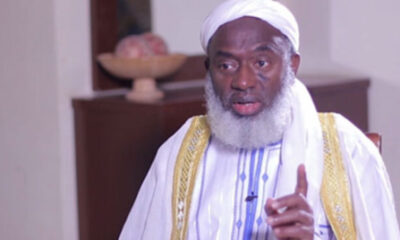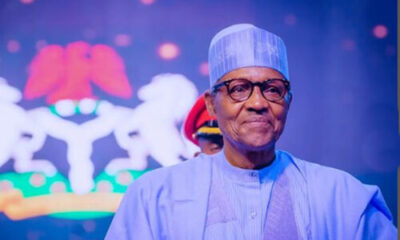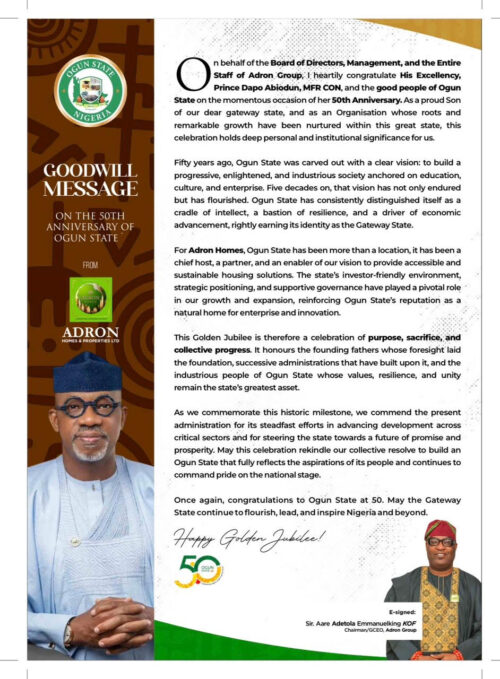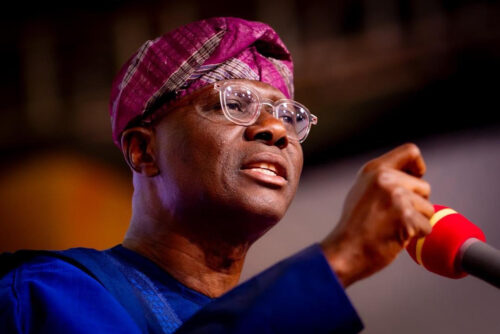If there has ever been one man, one governor in Lagos State, who has done greater things with immeasurable boldness despite his simple nature, that person is the current governor, Mr Babajide Olusola Sanwo-Olu. When it comes to daring projects, this gentleman stands taller. Let me break it down.
1: Last Friday, I drove by Alausa, and I saw the State Secretariat Extension building opposite the Bureau of Land and the Ministry of Environment and Water Resources. That building was meant to house the State MDA offices that are spread across the state in rented buildings. The building project has passed through God knows the number of administrations in the State, and I always wondered what was responsible for the delay in completing that single project. Against whatever odds, the administration of Sanwo-Olu has taken up the project and almost completed it. It is hoped that, on completion, it will be put into use and afford the State huge savings from the annual rents it has been expending yearly.
2: The Oko Baba log market by the Ebute Meta waterfront. This is a community that has existed for over a century. The log market has been a stain on the beauty that the waterfront would have complemented the view from the Third Mainland Bridge. No administration– military or civilian– in the past was bold enough to tackle the menace.
When I first heard Governor Sanwo-Olu’s administration’s intention to evacuate the market to Agbowa-Ikosi in his speech at the inauguration of the Epe Film Village, where I sat in the hall near my friend and colleague, Tade Ogidan, I remembered whispering to him that the Governor’s pronouncement was a political statement and doubted how he could achieve that.
Behold, the day I saw the location from the Third Mainland Bridge, sometime mid-last year or thereabout, I had to park and took a proper view of the site with the sawmillers already evacuated to a brand new purpose-built Timberville in Agbowa-Ikosi. That took some guts that the previous administrations’ military or civilian could not attempt. The major credit for that assignment was how it was done quietly.
3: The Pelewura Market: This market, I remember, was built on a site that used to be a dumpsite by the Lagoon on Adeniji Adele, before the Third Mainland was built.
The place used to be another ‘Owode Onirin’ where scraps were traded, particularly by the ljebu traders who were the original motor spare parts traders before the advent of the Eastern traders after the war.
I cannot remember the administration that later acquired the site and constructed lock-up shops on it that were sold to individuals. However, rather than the shops being used for trading, many were converted to accommodation that was let out to many undocumented characters that flung the State within and without the country. Thus, Pelewura Market gradually became unkept and a den for criminals.
Many administrations had watched this site unattended before now. It was the same day I saw the Oko Baba evacuation that l saw the demolition of Pelewura Market by this administration. It is the same daring approach being witnessed now at Makoko –Nigeria’s largest informal waterfront community.
Previous administrations saw the need to remove the illegal residents and traders on the Makoko corridor, who built their homes on makeshift stilts with the attendant danger and serious environmental degradation of the location and unsuitable view of the waterfront, but were frightened by the threat of those NGO Groups, who had turned the community into a money spinning activities for sustenance. I can see Governor Sanwo-Olu going headlong to achieve that which other administrations, in the past, have not been able to do.
I have seen many praise the courage exhibited by former Lagos Military Governor, General Raji Rasaki, concerning the overnight demolition of Maroko and the evacuation of the people residing there. I would say there is nothing spectacular about the daring posture of Gen. Raji Rasaki. It was a military regime that could have done the same to a community that was covered by adequate titles to their homes, and nothing could have happened.
The aforementioned Sanwo-Olu administration stands taller concerning bold policies to achieve difficult assignments that benefit the State.
The icing is the fact, that, the governor applied his quiet and simple nature in achieving all of these without unnecessarily talking down on victims, like a certain former governor and now Minister that we all know.
However, the Sanwo-Olu administration needs to improve on its supervision of the public infrastructure it builds or maintains. This is one weakness I have observed.
Oshodi was cleaned up by the Babatunde Raji Fashola administration, and discipline was introduced in the running of the place by the National Union of Road Transport Workers, NURTW.
The
Akinwunmi Ambode administration also gave the corridor a facelift, with the construction of the high-tech terminal. But today, Oshodi appears to be going back to the previous times. The terminal is underutilised and not in a good state.
A close example is the activities of the itinerant street boys, called Bolar Boys. My last check on Lateef Jakande Road, in Agidingbi area of Lagos, revealed how these boys have gradually removed the strong iron protection railings at the Bus Stop from the one by the Lagos Television, LTV, opposite Coca Cola Plants. Ditto the one at Agidingbi Primary School Bus Stop, and the same goes for the one at Agidingbi Grammar School and the one by Mega Chicken.
To think that these are locations close to the government offices, and some guys are employed as Business District Police but choose to engage in vehicular assignments. This needs to be looked into.
Lastly, the Governor, as part of his unique endeavours in breaking the ice that others were not able to dare, should add to his schedule Oba Akran Road and its adjacent roads that are holding industries, a total reconstruction as done in Apapa, Surulere (Eric Moore), and other industrial locations in the State.
Of course, I am aware of the two major impediments on that road: the overhead mini high tension electric cables and the underground gas pipe laid. These, I believe, are surmountable, going by the daring nature of the governor in infrastructural engagement. The unique achievement this will be is the first transformation of the first main road that held the very first industrial estate in Nigeria by the colonial administration and developed by the sage, Chief Obafemi Awolowo, administration in the first republic.
More so, Baba Awo will be glad in heaven.
Barrister Tunji Bamishigbin is a lawyer and creative entrepreneur. He writes from Lagos

 BIG STORY5 days ago
BIG STORY5 days ago
 BUSINESS4 days ago
BUSINESS4 days ago
 ENTERTAINMENT2 days ago
ENTERTAINMENT2 days ago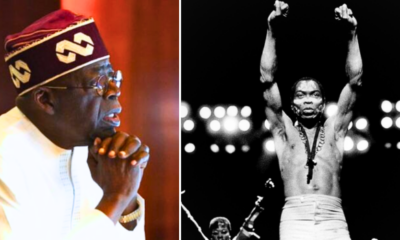
 ENTERTAINMENT2 days ago
ENTERTAINMENT2 days ago
 BIG STORY1 day ago
BIG STORY1 day ago
 BUSINESS3 days ago
BUSINESS3 days ago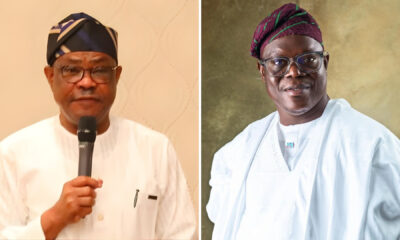
 POLITICS5 days ago
POLITICS5 days ago
 BIG STORY5 days ago
BIG STORY5 days ago






